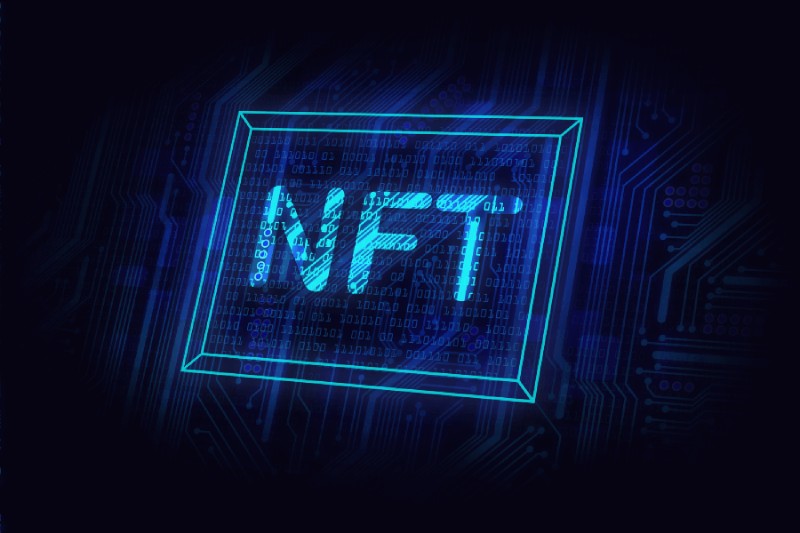The use of NFT in manufacturing is still in its early stages, but there are already several benefits that have been identified. One key benefit is the potential for increased efficiency and productivity. For example, people can use NFT to track individual parts or products through the manufacturing process, allowing for a more streamlined and efficient production line. If you are interested in jumping on the NFT train, visit nft-trader.
Additionally, NFT can streamline information and communication between different departments or locations within a manufacturing facility. As a result, it can help minimize errors, cut costs, and increase responsiveness, which is essential for success in the modern manufacturing industry. Finally, NFT can also improve quality control measures by allowing for more accurate tracking and identification of defects.
Table of Contents
How has NFT had a positive impact on Denmark’s manufacturing industry?
NFT has had a very positive impact on Denmark’s manufacturing industry. NFT is a great way to increase productivity and efficiency in the manufacturing process, and it has also helped create new jobs in the industry. In addition, NFT has helped improve the quality of products produced in Denmark. Overall, NFT has had a very positive impact on the manufacturing industry in Denmark.
With this technology, manufacturers can produce more items in less time, which helps to boost output levels. In addition, by automating specific processes and tasks, NFT allows manufacturers to save on labor costs, further increasing profits.
Another reason why NFT has been beneficial to Denmark’s manufacturing industry is because it has helped create new jobs. As more manufacturers adopt this technology, they have needed to hire additional staff to operate and maintain the equipment.
Finally, NFT has also helped improve the quality of products produced in Denmark. With this technology, manufacturers can closely monitor and control the entire production process. As a result, they can catch problems earlier on and make adjustments as needed, which results in higher-quality final products.
Overall, NFT has played an essential role in Denmark’s manufacturing industry.
How has NFT hurt Denmark’s manufacturing industry?
The Danish manufacturing industry has been hit hard by the rise of non-fungible tokens. NFTs have created a new market for digital assets that can be traded and sold without a physical product. As a result, it has led to a decline in demand for traditional manufacturing products, such as furniture and toys.
In addition, NFTs have also created a new class of investors and speculators who are more interested in buying and selling digital assets than in investing in manufacturing companies. As a result, the value of the Danish krone has declined relative to other currencies, and the country’s manufacturing sector has lost competitiveness.
NFTs have been particularly damaging to Denmark’s furniture industry. The traditional manufacturing process for wooden furniture is complex and time-consuming, requiring skilled labour and expensive tools. As a result, it has made it difficult to compete against companies that use NFTs to produce cheap, mass-produced furniture designs.
In addition, NFTs have enabled customers to buy and sell furniture without ever having to see or touch the product, which has further eroded the demand for Danish furniture.
The decline of the Danish manufacturing industry directly results from the rise of NFTs. NFTs have created a new market for digital assets that do not require physical products. As a result, it has led to a decline in demand for traditional manufacturing products, such as furniture and toys.
In addition, NFTs have also created a new class of investors and speculators who are more interested in buying and selling digital assets than in investing in manufacturing companies. As a result, the value of the Danish krone has declined relative to other currencies, and the country’s manufacturing sector has lost competitiveness.
Although the impact of NFTs on Denmark’s manufacturing industry is undeniable, it is clear that technology will become an essential driver of innovation in a variety of different sectors. For example, developing new platforms for funding and investing using NFTs has created opportunities for entrepreneurs to raise capital without relying on traditional funding sources. And the use of NFTs in online gaming provides new ways to engage with customers and build brand awareness.
Overall, while the rise of NFTs has been challenging for manufacturers in Denmark, it is essential not to lose sight of the innovation and growth opportunities that this technology can also create.
How does NFT help boost Denmark’s economy and provide jobs for its citizens?
NFT can help Denmark’s economy by providing jobs for its citizens. For example, people can use NFT to create digital art, which people can sell online. In addition, it can provide an income for artists, who can then use that money to support themselves and their families.
In addition, people can use NFT to create virtual worlds, which users worldwide can access. It can attract tourists to Denmark, which can help boost the local economy in many different ways. Overall, NFT has the potential to provide a variety of benefits for Denmark’s economy and its citizens.
There are several ways that NFT can benefit Denmark’s economy and support its citizens. One fundamental way is by providing jobs. For example, people can use NFT to create digital art, which people can sell online. It provides an income for artists, who can then use that money to support themselves and their families. Additionally, people can use NFT to create virtual worlds, which can attract tourists from all over the world to Denmark.



